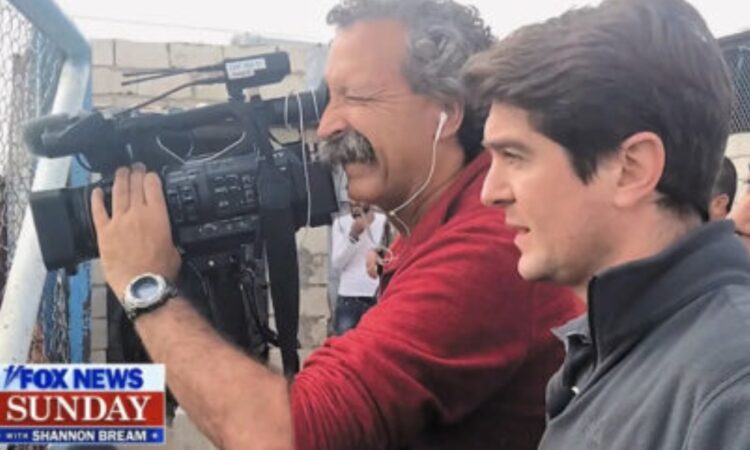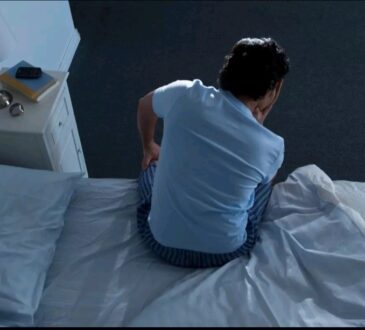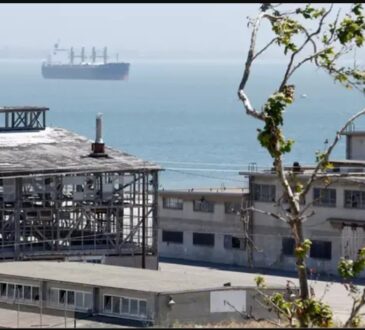War Reporter Benjamin Hall Tells Fox News Sunday He Remembers The Heroes, Not The Horrors: If We Fight Hard For It, Good Will Win

Fox News reporter Benjamin Hall was critically wounded covering the war in Ukraine, in a Russian attack that claimed the life of his colleagues and friends, cameraman Pierre Zakrzewski and Ukrainian consultant Sasha Kuvshynova. Hall has seen many other horrors in covering conflicts around the world, too. But, he told Shannon Bream on Sunday, it’s the heroes that you remember, the people who help and risk their lives for others.
Hall sat down with Bream for Fox News Sunday to talk about what he has learned from his experiences, to remember his fallen colleagues, and to discuss how good people and strong faith have helped him through every step of his rescue and recovery. It’s a subject of his book, Saved: A War Reporter’s Mission To Make It Home, and the two discussed his experiences in an interview that focused on the courage and commitment he’s witnessed.
Asked about his faith, Hall said it has mattered a lot to him. He was raised Catholic, and talked about how the world can test those convictions.
“You know, I was raised Catholic. I was at school and monastery, and every single day I thought about what that meant to me,” he said. “And along the way, covering wars, I sometimes had moments where I doubted it. You see horrific things and you always ask yourself, you know, what role does God play in a in a society where this horror happens?”
“But I come out of this with my own injuries feeling the opposite. I don’t remember the horror that happened to me. I don’t remember the evil. I see all the good,” said Hall. “I see the incredible people who came together to get me. To build me back together. To help me.”
“I think that is a sign of God, the pureness of it,” Hall said. “You know, it’s out there. And if we fight hard for that, if we fight hard for the great and the good, it will win.”
Hall described the moments of the attack, and added: “I know I was saved that day. The book is called Saved because I was saved by so many people. And by the Heavens, too.”
SHANNON BREAM: And you’re aware of the risks. I mean, you talk about that and there’s so many fascinating stories that read like a spy novel of sneaking into countries and on boats and all kinds of near brushes with death. This was not the first time that you had been in real danger when March 14th happened in Ukraine.
HALL: Yeah, I mean, I spent many years before I was at Fox as a freelancer. And the fact of any journalism is, if you want to get the right story, the best story, you have to be at the front. You have to be speaking to the people right in the middle of that story. And in a war zone, the only way to get there is to get on small boats, you know, illegally cross borders, you know, wade through rivers, sleep in caves. And that’s what we did for a number of years. And I think it’s the only way to tell these stories.
BREAM: And you at the heart of the book is obviously explaining exactly what happened March 14th when we lost Pierre and Sasha. And you were literally in a life and death struggle for a long time after that. And our colleague Jen Griffin immediately jumped into action. And with her depth of knowledge and her experience, she coordinates with Save Our Allies. There’s a guy named Seaspray in the book who is this heroic character. There were so many incredible hurdles and things that had to happen. Exactly right. Doctors, volunteers, people to get you to safety. I know you were just surviving it at the time, but looking back, does it feel like one miracle after another?
HALL: It was there were miracles as well. And at the time I was thinking, stay alive. However, you have to just get through this and try and get home. And then I later learned of what was going on behind the scenes. Jen Griffin Save our allies. These people began to work immediately within seconds, and there were times where some decisions hadn’t been made. Within minutes. I wouldn’t have got on the right train. I wouldn’t have been found in the hospital. I wouldn’t have survived. And so looking into that, learning about that was one of the other reasons I wanted to write the book is because I was amazed that all these heroes who came in for me risked their own lives to come in and save me. And for many of them, these were, you know, former military. They said, there’s an American stuck in Ukraine. We will do whatever it takes to go and get him home, get him back to his family. And that’s what they did. And they don’t really want recognition. They want to do that because they believe in doing the right thing. And that’s what they did for me. And they should get recognition. Everyone should reach out and support them and save our allies is a group that continues to work well today, saving people around the world.
BREAM: There are so many heroes through every page of this book, but I found it fascinating that it was almost a full circle situation for you because of your father’s story about being rescued by American GIs.
HALL: Yeah, it’s amazing. About 77 years ago at the end of the Second World War, my father was 12 years old. He was in the Philippines, in Manila. For four years. He lived under Japanese occupation in the bombed out streets of Manila.
For four years. He lived under Japanese occupation in the bombed out streets of Manila. Most his family had been killed by the Japanese, and when the US Army, led by General MacArthur, came back in, he was told, If you want to survive, you have to find the American lines. And they these little kids fought their way through the streets to get there and finally saw the American lines, the Buckeye Division
He was the Ohio National Guard. At the end, they finally managed to get their one kid shot alongside him as it happened, and he was lifted into the arms of an American G.I. and he was saved. And he came to America himself. He served in Korea in the US Army. And here I am all these years later across the world, being saved by American heroes. And the US military was there for me, too.
When I crossed into Poland, there was a hawk wait in the 82nd Airborne was there. And that moment where I was lifted up into the sky because again, I’m a come from a family who has been rescued again and again by Americans abroad and are so proud and honored to be a part of it.
BREAM: I mean, one of the most beautiful things in the book, too, you actually have images that go along with so many of these stories, including that rescue of your father all those years ago and then your rescue and this amazing story about, you know, we talked about we know how the story ends and that you got out safely,
but you are on the edge of your seat reading this account of exactly how you got through each checkpoint, each impossible hurdle, everything that happened. And I know at one point you want your cell phone, you want to try to call your wife. At the center of this book is very much a beautiful love story, too. And she’s one of your heroes as well.
HALL: She is. I mean, you know, I get emotional really only when I think of her, because people talk about how well I got through this, how brave I have been courageous. But it wasn’t me. I didn’t do this by myself. I did this because of an incredible family and all the other heroes you talked about.
But my wife has been there from the very beginning. She has kept our family strong. She’s helped make those decisions. She said no matter what we’re going through, we will get through it together. And you talk about marriage, You know, it’s in sickness and in health. And we we’ve been put to the test.
We really have. We’ve come out stronger and we are together every single day. And when I look at her every single moment now, I think what a lucky man I am that I made it home to her. And that’s how I got through this from the minute I was injured and the attack happened and I was lying on the floor with my leg. Missing and bleeding everywhere. I thought, I’m going home no matter what
I’m going to see my wife and children. If I have to crawl, I’m going to get home. And that’s what I thought every step of the way, right through recovery. Ride on that train. Ride out. Right with a no pain meds. I’m going home. And if you hold on to that one idea and you want to get there, I believe we can get through anything. And for me, that was getting back to my family.
BREAM: And how have you talked to the girls there so young about what happened and what your life is like now?
HALL: It is difficult and it was one of the things I was most afraid of is trying to introduce them to the realities of what had happened to me and showing it to them. But we also believe in being totally honest with them. So it took us a while to tell them that I had lost my leg and my foot, and I was amazed when we finally told them that that had a robot leg.
They thought it was the most exciting thing they’ve ever heard. So I was relaxed then, but they’ve seen my injuries up close since then. And my oldest still talks about, you know, bombs and the damage and what could have happened to me. So we’re talking to them closely.
And these are discussions that I wouldn’t have had with them at this age. But the discussions we’ve had to have and we go through it together and we try to be as open as possible. But I think the key thing is we’re together and we can get through anything together.




